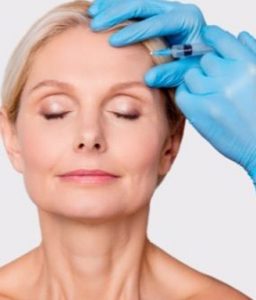
Is tear trough treatment a good idea?
Are your eyes giving away your age? Tear trough treatments may offer a solution by restoring volume in the under-eye area for a smoother appearance.
Dr Michael Rich is a specialist dermatologist who has been performing tumescent liposuction for over 30 years. Find out if Liposuction is suitable for you at ENRICH Clinic.
At ENRICH Clinic, we have a wide range of dermatological and cosmetic body treatments tailored to individual body and patient needs.
At ENRICH Clinic, our treatments are performed by our medical team consisting of doctors, nurses, and dermatologists and are tailored to each patient’s skin health needs.
ENRICH Clinic is committed to your skin health and well-being with a range of dermatological & cosmetic treatments tailored to the individual. Our treatments are performed by our medical team consisting of doctors, nurses, and dermatologists.
Skin health is essential for everyone. ENRICH Clinic has a wide range of technologies and dermatological solutions to help you achieve your skin care goals.
Piles of data, algorithms and machine intelligence are revolutionising healthcare, and have great potential in revolutionising dermatology. Clinics may soon see the immense benefits of artificial intelligence (AI) filtering through, with advancements in diagnosis and interpretation of tests on the horizon.
Anti-ageing is a prime target for the AI industry, since when it comes to the skin, hair and nails, we can actually see what happens – a condition is easier to diagnose by sight than other diseases in the body, which may be described by a patient, but remain unseen by their doctor. Melanoma diagnosis, for example, is one such area that AI is outperforming top doctors in already.
There have been several major papers published regarding the possibilities in AI, with one feature what’s known as deep learning. Deep learning is a process whereby intricate structures in large data sets can be discovered by using special algorithms that dictate how a machine should alter its internal parameters to compute layers, and how those layers are represented sequentially.
Sounds complex, and it is, but luckily most of us don’t need to worry about the details, except to know that AI is now functioning more and more like the human brain. Some deep learning can accurately predict age, which is useful when it comes to anti-ageing and cosmetic medicine.

Bioinformatics and deep learning can screen for naturally-occurring compounds that might slow, or reverse, ageing mechanisms. This can help in product development, from nutraceuticals to dermal fillers. Skin age and appearance can be determined through multiple layers of skin, and analysis can include genetic components, to figure out which products will be most suitable for a person’s biology. Dermal filler, collagen stimulators, chemical peels, laser… what you end up with as a treatment will depend on what is discovered in the deep learning. Reversing the signature of age is the goal, with outcomes measurable by molecule.
We will be able to determine whether a dermal filler, as an example, has done what it was designed to do in the skin, by requesting pattern recognition results from before and after measurements. The deep neural network of the AI will be extremely accurate and clearly demonstrate effectiveness – or in some cases, depending on the person, possible damage – of a dermal filler, injection, or cream on the skin.
The shift from human work to machine work has already begun in factories and farms, with predictions that even doctors will be replaced by AI in the future. Deep neural networks are already better than doctors at interpretation of MRIs, CT scans, and ultrasounds. How and where your dermal filler, anti-wrinkle injections, medicated cream or nutraceutical is applied might soon be done by a machine.
AI advances are likely to provide us with some important medical and anti-ageing advancements, and while there is plenty to be afraid of, there is also plenty to look forward to. More accurate cosmetic treatments, surgery and diagnosis are just some of the interesting and useful tools currently being developed.
Our Melbourne clinic is technologically advanced!
Call Melbourne clinic
*With all surgeries or procedures, there are risks. Consult your physician (GP) before undertaking any surgical or cosmetic procedure. Please read the consent forms carefully and be informed about every aspect of your treatment. Surgeries such as liposuction have a mandatory seven-day cooling-off period to give patients adequate time to be sure of their surgery choice. Results may also vary from person to person due to many factors, including the individual’s genetics, diet and exercise. Before and after photos are only relevant to the patient in the photo and do not necessarily reflect the results other patients may experience. Ask questions. Our team of dermatologists, doctors and nurses are here to help you with any of your queries. This page is not advice and is intended to be informational only. We endeavour to keep all our information up to date; however, this site is intended as a guide and not a definitive information portal or in any way constitutes medical advice.
"*" indicates required fields
Combining Dr Rich’s dermatological skill with his knowledge of restorative skin regimes and treatments, the ENRICH range is formulated to help maintain and complement your skin. Our signature Vitamin C Day & Night creams are now joined by a Vit A, B,&C Serum and a B5 Hyaluronic Gel, both with hydration properties and much, much more.

Are your eyes giving away your age? Tear trough treatments may offer a solution by restoring volume in the under-eye area for a smoother appearance.

We will delve into non-surgical alternatives that can have your eyebrows raising.
Anti-wrinkle injections typically associated with cosmetic enhancements, have recently emerged as a potential treatment for bruxism.

In the world of aesthetics and dermatology, the right pairing of treatments can work together in harmony, offering exponential benefits beyond the individual results of each procedure.
Subscribe to the ENRICH newsletter and receive latest news & updates from our team.
Enrich Clinic acknowledges the Traditional Lands of the Wurundjeri Woi Wurrung and Bunurong peoples of the East Kulin Nations on which we work and trade. We pay respect to their Elders past, present and emerging. We extend our acknowledgement and respect to the LGBTQIA+ community who we welcome and support. Read our full Acknowledgement Statement here
